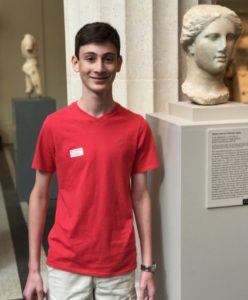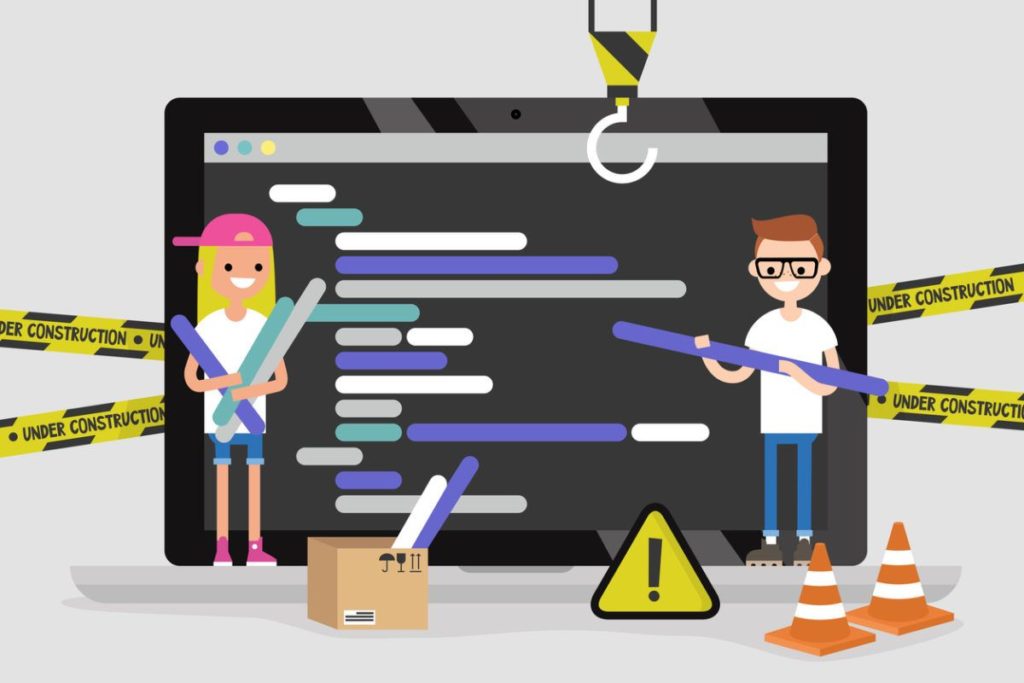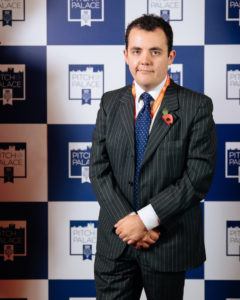Teenagers are making their presence felt in the tech start-up world, developing apps, creating social networks, and building online businesses at a remarkable pace. Far from treating them as side hustles to their schoolwork, these youngsters take their tech ventures very seriously, demonstrating discipline, drive, and determination while developing the project management skills and strategies they know they need to succeed.

Aaron Golbin is the teenage creator of several online ventures, including DebateIsland.com, a debate platform that uses AI to revolutionize the online debate experience, and LostCry.com, a website where users can share their ancestors’ stories of hardship. He is also the founder of BestDealWins.com, which uses gamification to turn the quest to save money online into a game-like experience. It’s an impressive achievement given that he is only 15 years old.
Based in New York, Golbin admits to always having had a fascination for new technologies and new innovations around startups and websites. In fifth grade, he started taking online programming classes, which sparked his passion for coding. Additional programming classes in different languages further strengthened his coding skills.
Golbin, who is currently working on a new AI project for DebateIsland, sees project management skills as key to the success of any business venture but admits that developing his own has been a steep learning curve.
“Project management used to be one of my ‘OK’ skills,” he says, “but after learning from others and becoming more experienced, they really improved, especially after launching my first website, DebateIsland.com, when I had to execute a large number of tasks and projects for that venture.”
Juggling business life with school life creates extra pressure, but one thing that Golbin has become adept at is time management. “It means I can manage my school work and my businesses without compromising either,” he says. “For example, I usually finish most of my homework during my lunch period at school, leaving ample time to work on my ventures at home.”
Like all entrepreneurs, when working on a new tech project Golbin occasionally runs into problems. “To resolve them quickly, I either consult with others who are knowledgeable in the project field, attempt to fix the issue myself, or search online for a solution. There are plenty of free resources available to entrepreneurs who need advice on fixing programming issues.”
He is exploring options for monetizing the platforms, including advertisements, sponsored content, and premium membership, but his main focus is ensuring they are the best they can be.
His immediate plans include sharing his 92-year-old great-grandmother’s story (Holocaust survivor) with a larger audience and working on another major piece of functionality for DebateIsland’s Debra AI (Artificial Intelligence) using AI, APIs, and proprietary code to interact with users in a debate and make a debate more in-depth and educational.
“Debra AI will be able to participate in a casual debate by creating intelligent posts, questions, and arguments at optimal times throughout a debate, keep users engaged in a topic, and ensure that all participants are civil,” he says. “The new technology enables Debra AI to positively contribute to discussions and debates, while the functionality can be applied to a wider range of applications, such as forums and Q&A sites.”
London-born Jenk Oz is the 13-year-old founder and CEO of iCoolKid, a digital platform for youngsters, which he set up at the age of 10. In just three years, with help from his parents, he has transformed the business into a publishing, media, consulting, and production company, creating ultra-cool content aimed at Generation Z. It is quite a feat for someone so young, and part of that success Oz puts down to a determination to learn how to be good at managing projects.
“Project management skills are an absolute necessity but weren’t a strong suit of mine when I began, as most of my experience centered around getting homework in on time,” he says. “But I’ve improved a fair bit, having learned a lot on the job and also being able to watch some of my mentors in action. Seeing professionals up close makes you want to emulate all their great traits and behaviors.”
Originally aimed at the 8-to-15-year age group, iCoolKid is set to undergo significant change in the coming months, with a shift in target audience towards an older age group, and a complete redesign of the website, with a new name of ‘thred.’ New technology, including the addition of an analytics platform, will help to customize the user experience.
Oz’s strategy for managing business change involves a multistage process. “We set up a group messaging board to get feedback on our ideas from the readers to make sure we are on point,” he says. “We then meet in person with our website developers, making sure there’s a creative and a programmer there. It has to look good and work smoothly, so answering questions in isolation is never the best way to approach costly changes.”
He believes the key to success as a tech entrepreneur is to recognize your own strengths and shortcomings, respond to feedback, and be a great communicator. “That’s the unifying force that engages people and encourages positive behavior,” says Oz.
Ollie Forsyth had dreamed of becoming an entrepreneur for as long as he could remember. At age 13, he launched his first business, Ollie’s Shop, an online gift shop for teenagers, but had no capital to back it. Instead, he contacted 10 different global suppliers and asked them to make him some friendship bracelets, with the proviso that they also sent him some free samples to get sales off the ground. Of course, he sold the free samples and quickly made his first $1,000. In its first year, the business turned over $18,700.
A string of further IT ventures followed, including UniBell, a university platform where students could buy and sell products, and digital marketing agency UNBXD. Today, at age 21, he is the founder of The Makers, an online community of companies disrupting millennial markets and helping entrepreneurs prepare to raise capital to grow their businesses.
In spite of his achievements, UK-based Forsyth says that managing projects and tasks and being organized have never come naturally. As a young teenager, he wrote copious to-do lists to keep himself on track. Today, he uses the same strategy along with digital task management tools.
When things get a bit chaotic and tasks and projects are more complex, Forsyth uses project management software to keep track of where he is with a task and, more importantly, to check on what everyone else in the team is up to. “I still write to-do lists before going to bed,” he says. “I tackle those in the morning and have the afternoon to work on other aspects of the business. Maintaining that routine keeps me organized.”
Launched six months ago The Makers and its team of four have ambitious plans for global expansion, with a focus on the Asian markets. Forsyth could be looking at moving out there in the next year. “I always knew where I would get to as a tech entrepreneur,” he says. “It’s about having the vision, the mindset and the right attitude.”









